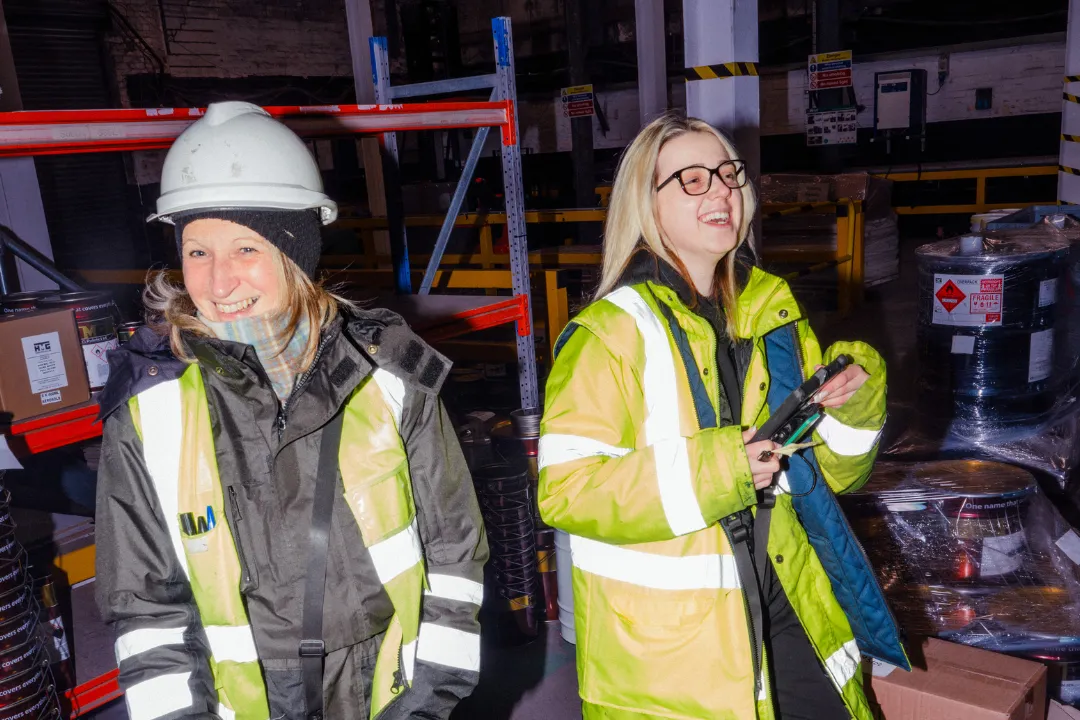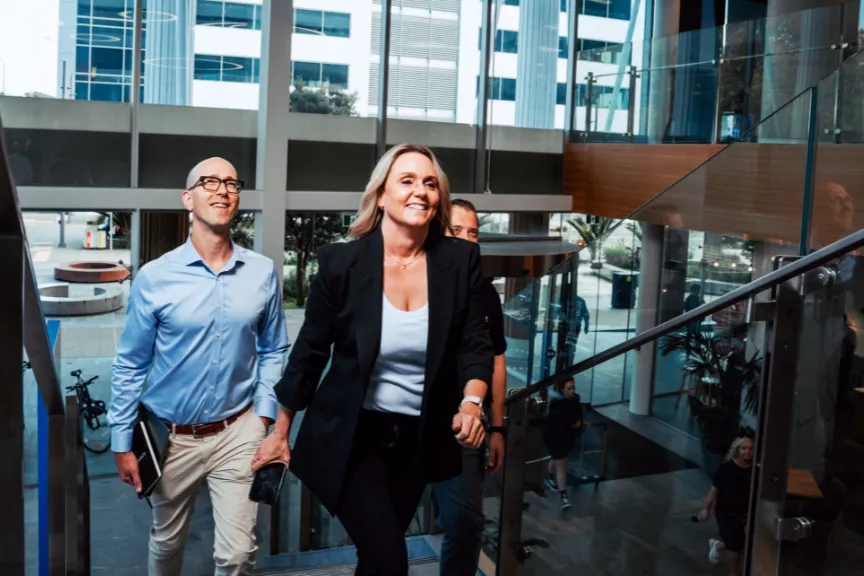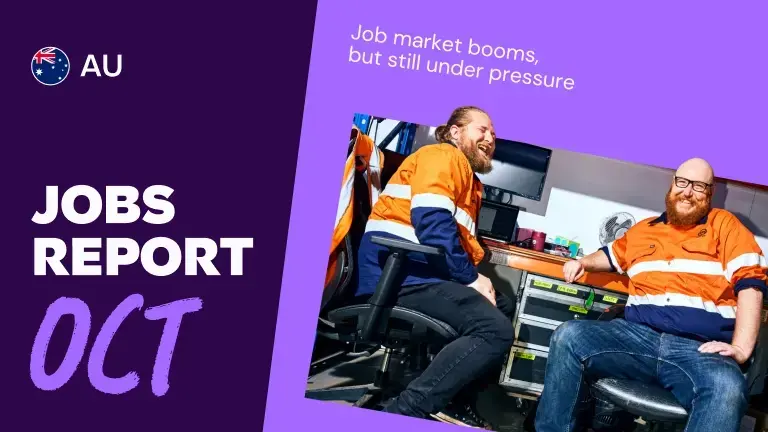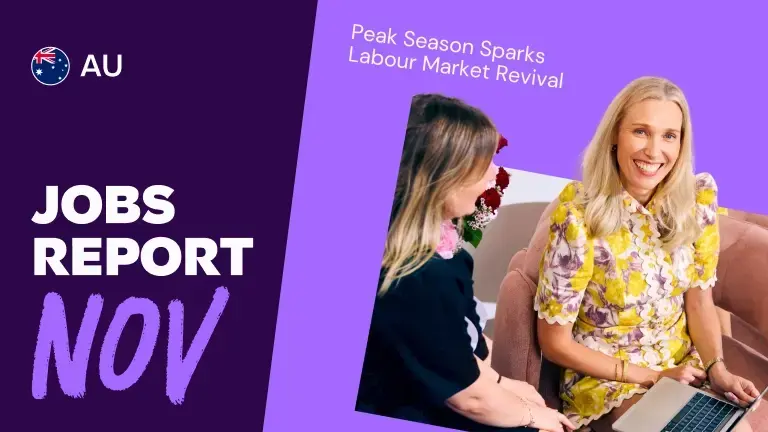Resources
Let us be your go-to for all things HR, people management and payroll. Take a look at our helpful blogs, webinars, research reports, guides and more.
Featured resources
-
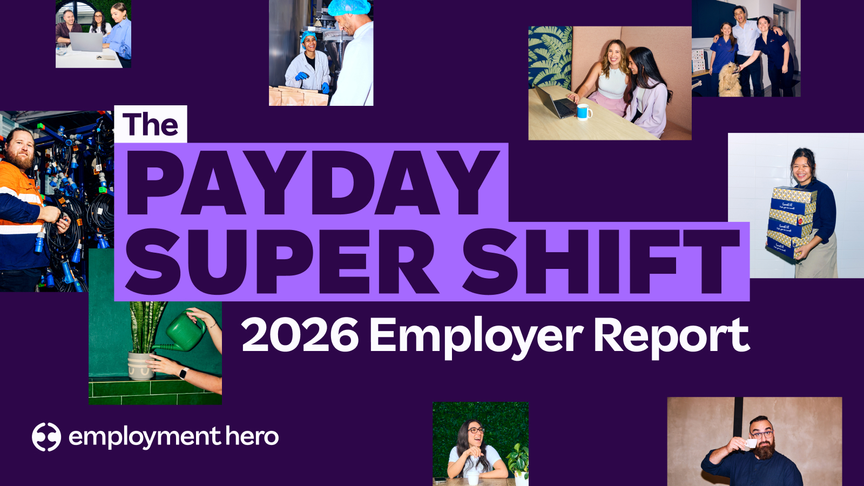
The Payday Super Shift: 2026 Employer Readiness Report
Read more: The Payday Super Shift: 2026 Employer Readiness ReportNew research on the cash flow risk and compliance gaps facing Australian employers. Download the report now and access industry benchmarks.
-
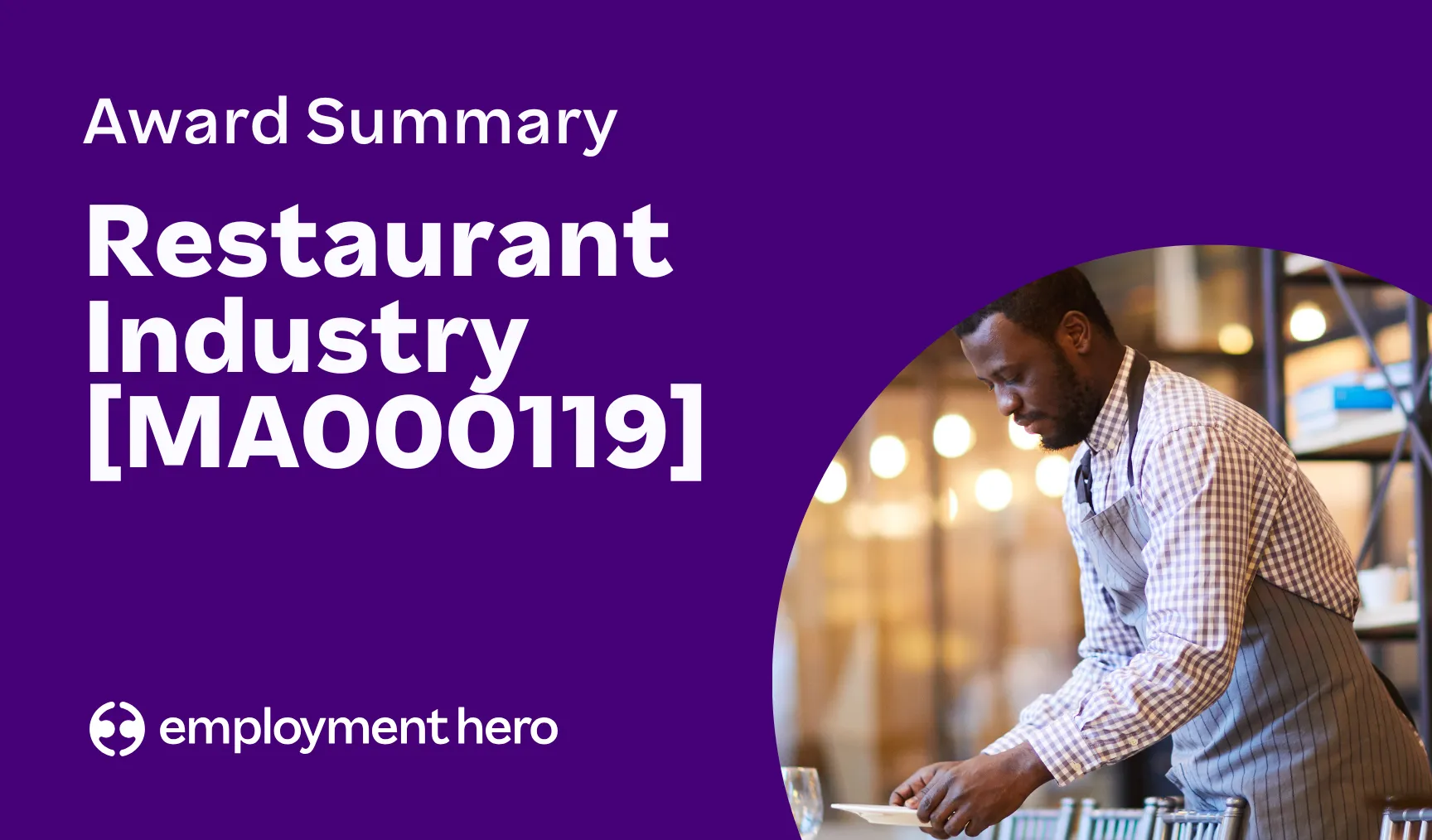
Restaurant Industry Award Summary [MA000119]
Read more: Restaurant Industry Award Summary [MA000119]This Award primarily applies to businesses operating restaurants, cafés and similar establishments, but also extends to employees performing similar roles.
-
![Alt text: "Purple graphic with text 'Award Summary: Manufacturing Industry [MA000010]' and Employment Hero logo. To the right, a group of diverse, smiling workers in a factory setting."](https://employmenthero.com/wp-content/uploads/2026/01/Award-Summary_Manufacturing-Industry.webp)
Manufacturing and Associated Industries and Occupations Award Summary [MA000010]
Read more: Manufacturing and Associated Industries and Occupations Award Summary [MA000010]The Manufacturing Industry Award covers employers and employees who work in manufacturing or associated industries.

Talent Insights
Report
‘The Great Resignation’, ‘Quiet Quitting’, ‘Career Cushioning’… What’s going on with Australian employees and the jobs market in 2023? We surveyed 1,000 to find out.
Trending topics
The future is flexible
-
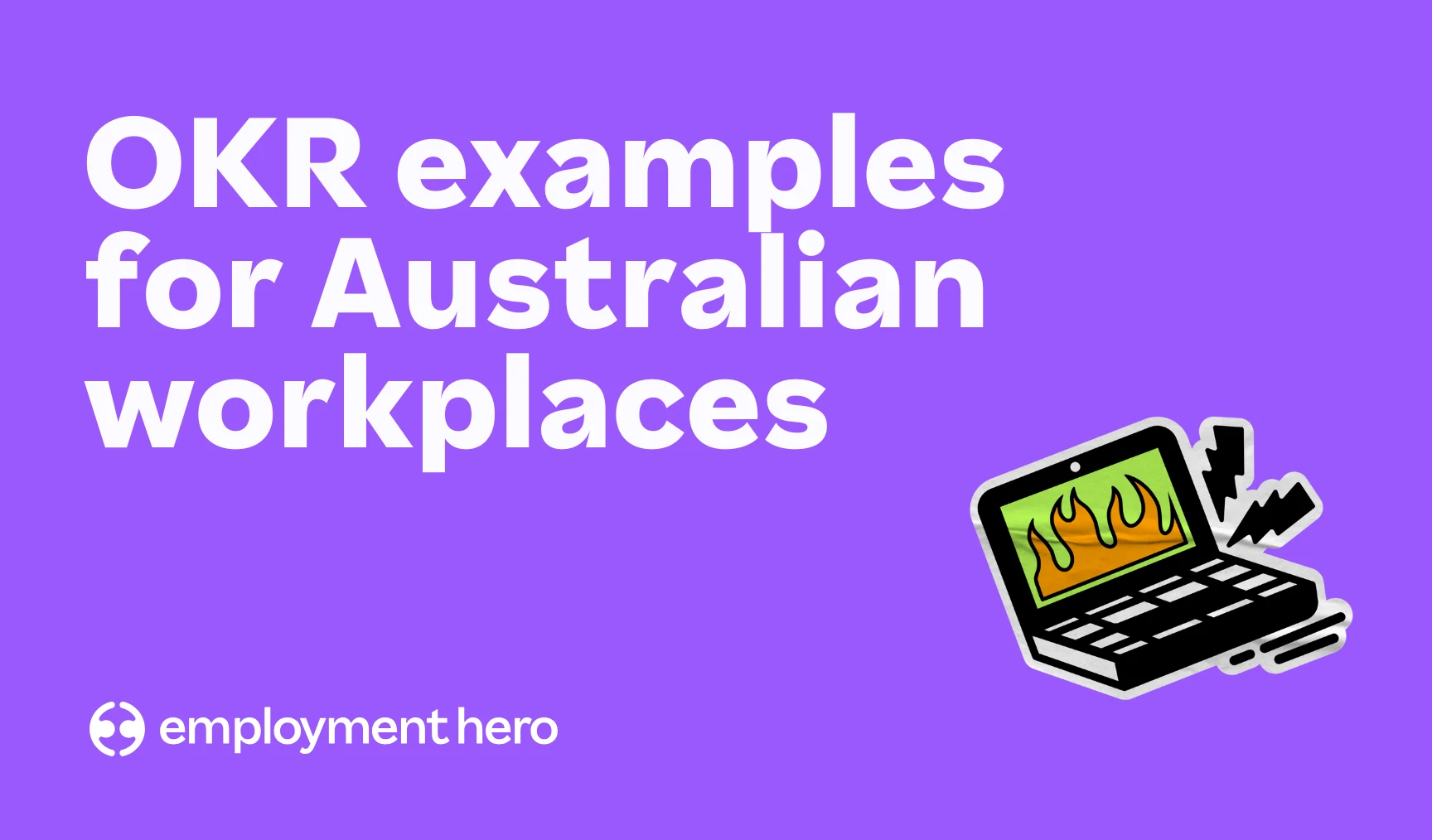 Read more: OKR examples for Australian workplaces
Read more: OKR examples for Australian workplacesOKR examples for Australian workplaces
Discover practical OKR examples for Australian businesses. Learn how to set effective objectives and key results to boost alignment and…
-
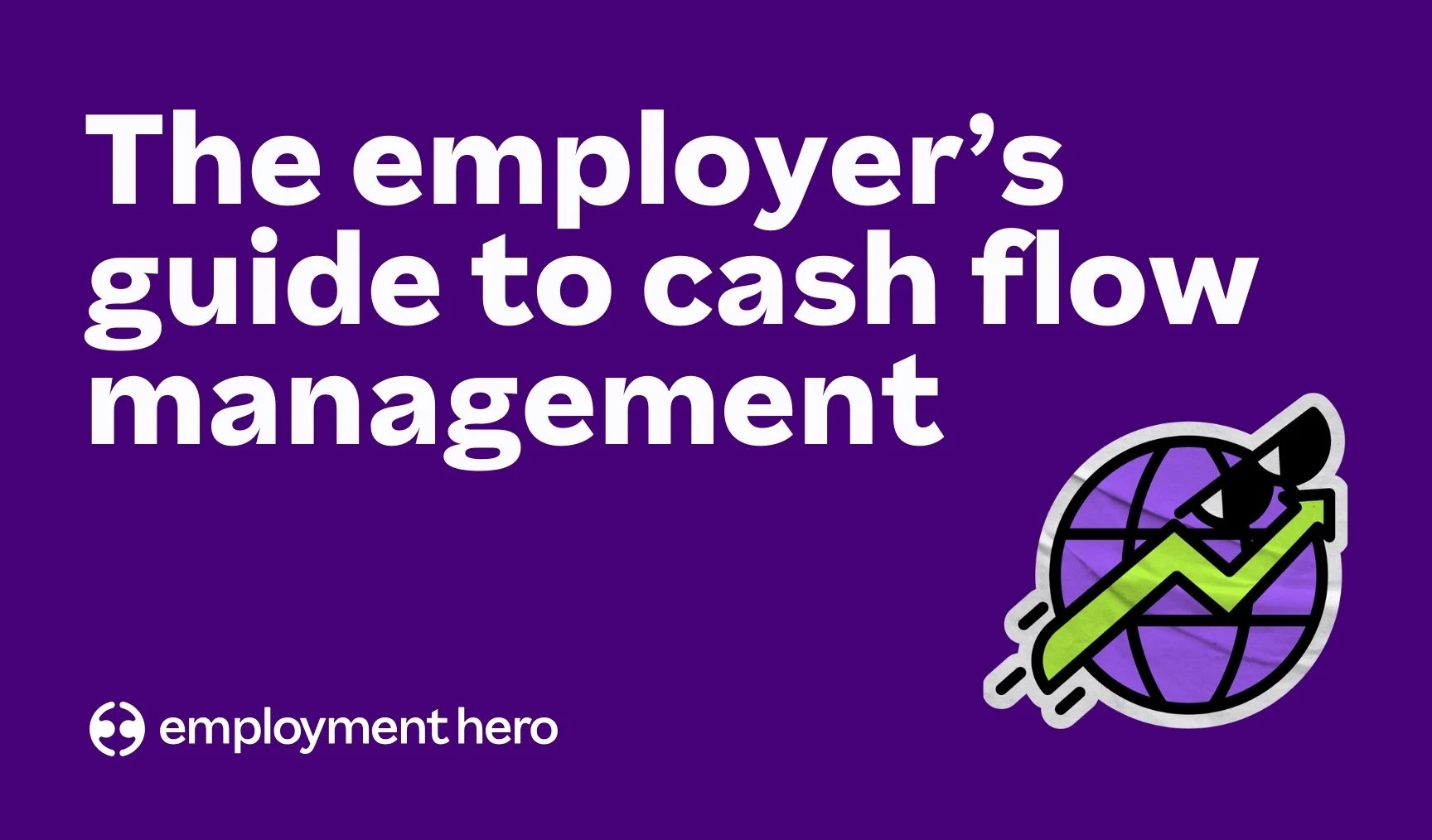 Read more: Cash flow management: The guide to financial health for Australian businesses
Read more: Cash flow management: The guide to financial health for Australian businessesCash flow management: The guide to financial health for Australian businesses
Discover effective cash flow management strategies for employers. Learn how to forecast cash flows, manage inflows and outflows, and ensure…
-
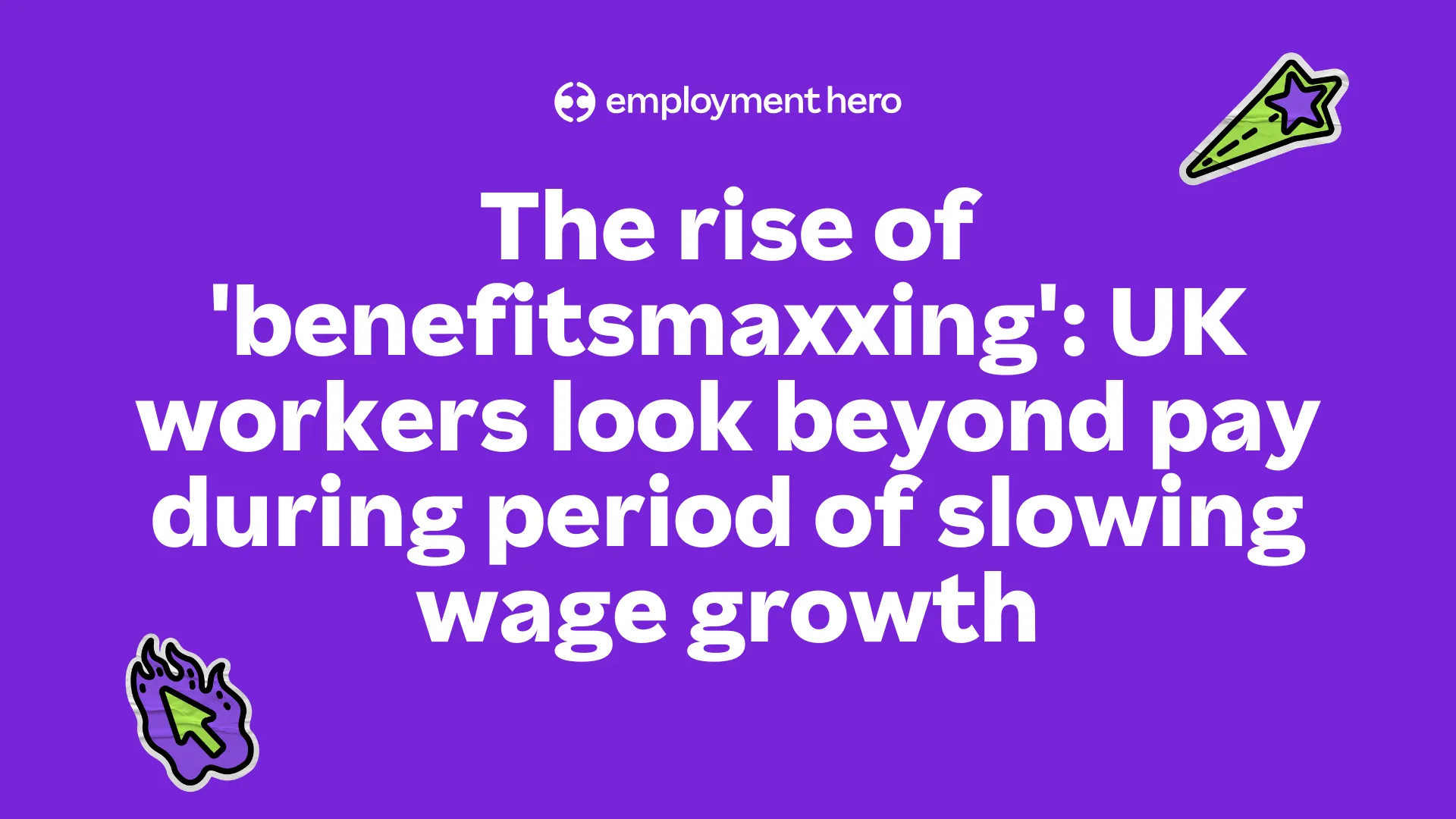 Read more: The rise of ‘benefitsmaxxing’: UK workers look beyond pay during period of slowing wage growth
Read more: The rise of ‘benefitsmaxxing’: UK workers look beyond pay during period of slowing wage growthThe rise of ‘benefitsmaxxing’: UK workers look beyond pay during period of slowing wage growth
26 February 2026 – New research commissioned by Employment Hero reveals 53% of UK workers say better benefits are a…
Trending guides and templates
-
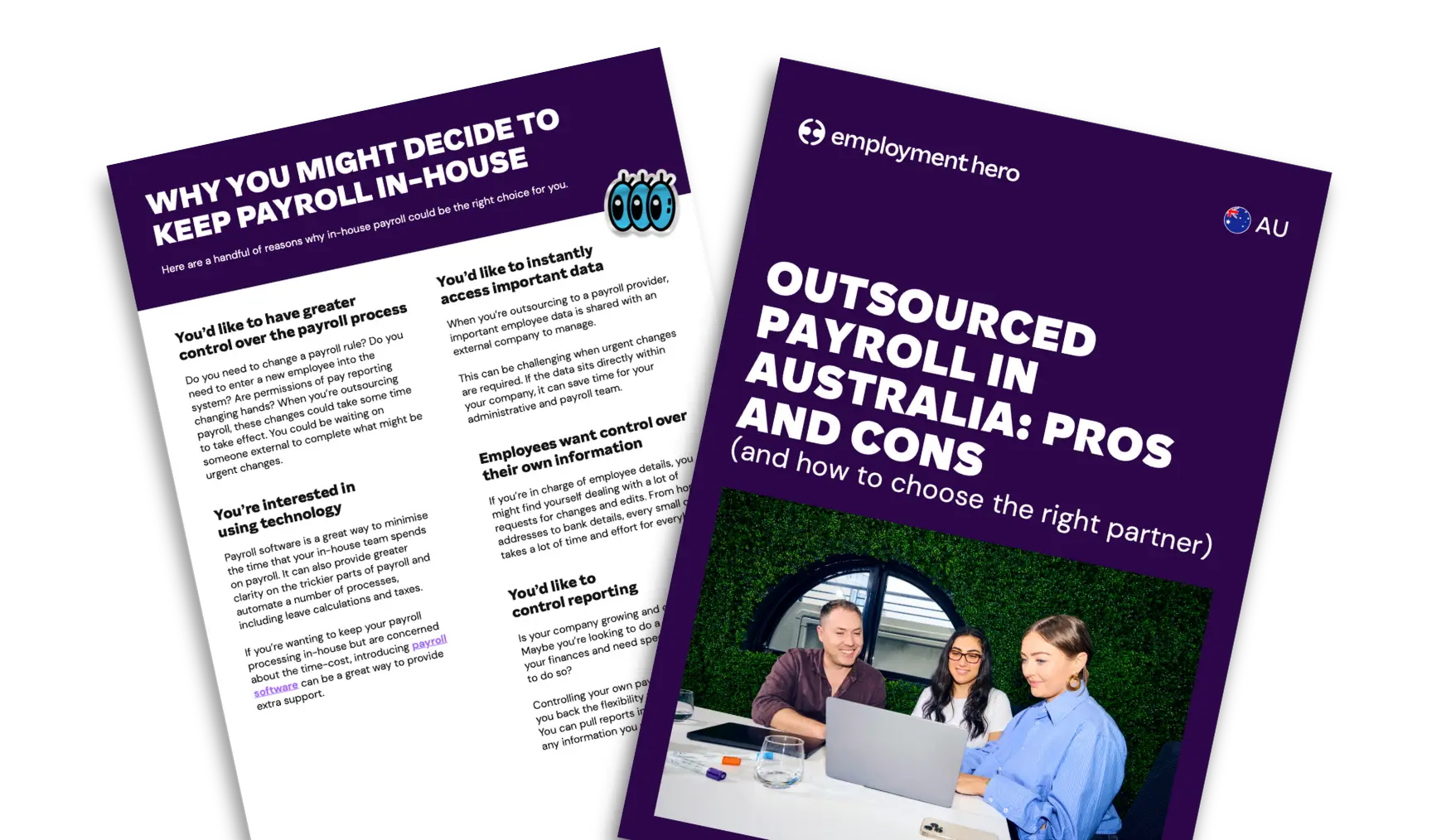 Read more: Outsourcing payroll guide: pros and cons for Australian businesses
Read more: Outsourcing payroll guide: pros and cons for Australian businessesOutsourcing payroll guide: pros and cons for Australian businesses
Discover the pros and cons of outsourcing payroll in Australia. Learn how it can save time, reduce errors and improve…
-
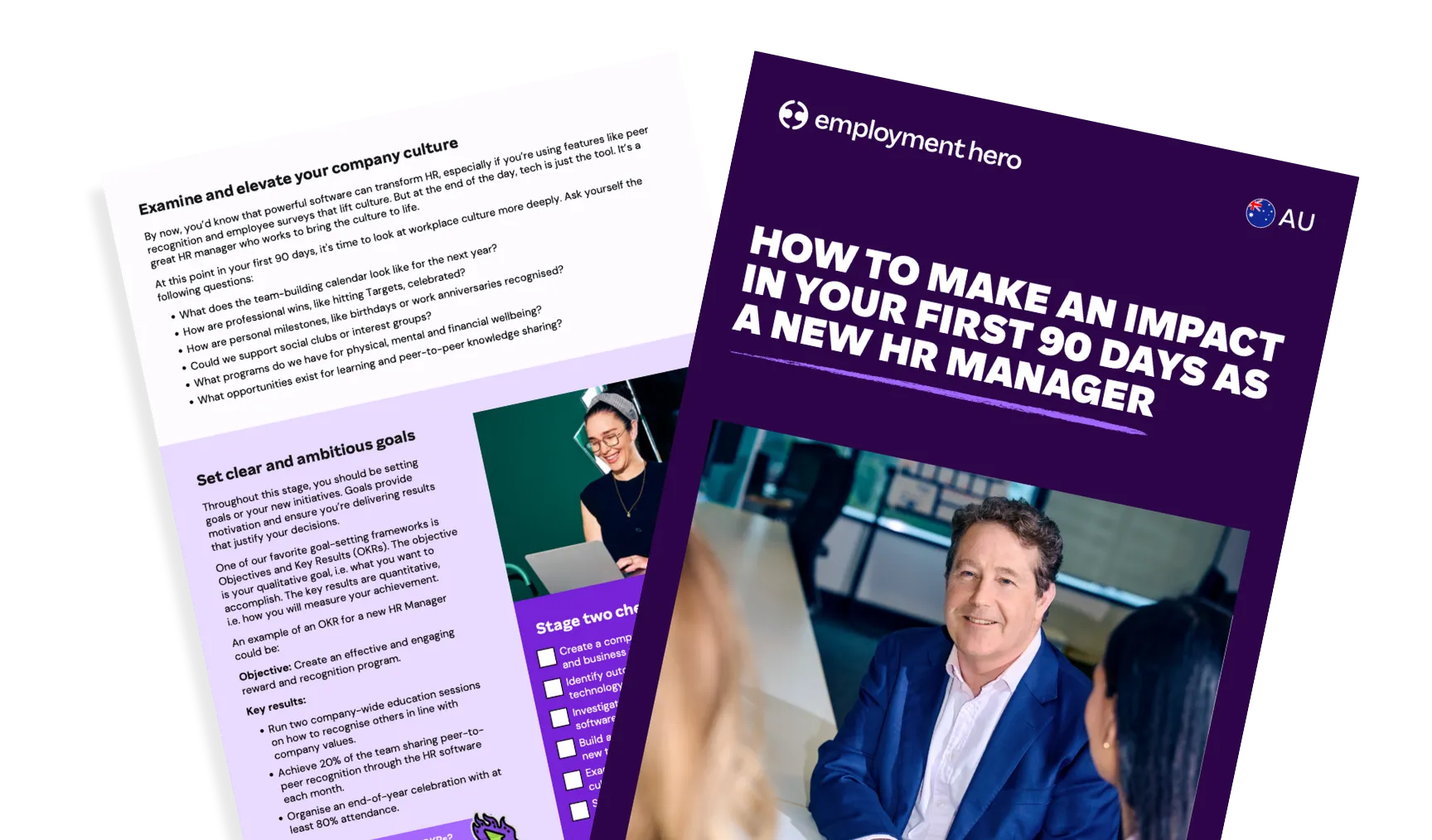 Read more: Your first 90 days as an HR manager: a complete 30-60-90 day plan
Read more: Your first 90 days as an HR manager: a complete 30-60-90 day planYour first 90 days as an HR manager: a complete 30-60-90 day plan
Starting as an HR manager? Follow this 30-60-90 day plan to build trust, set strategy and make an impact in…
-
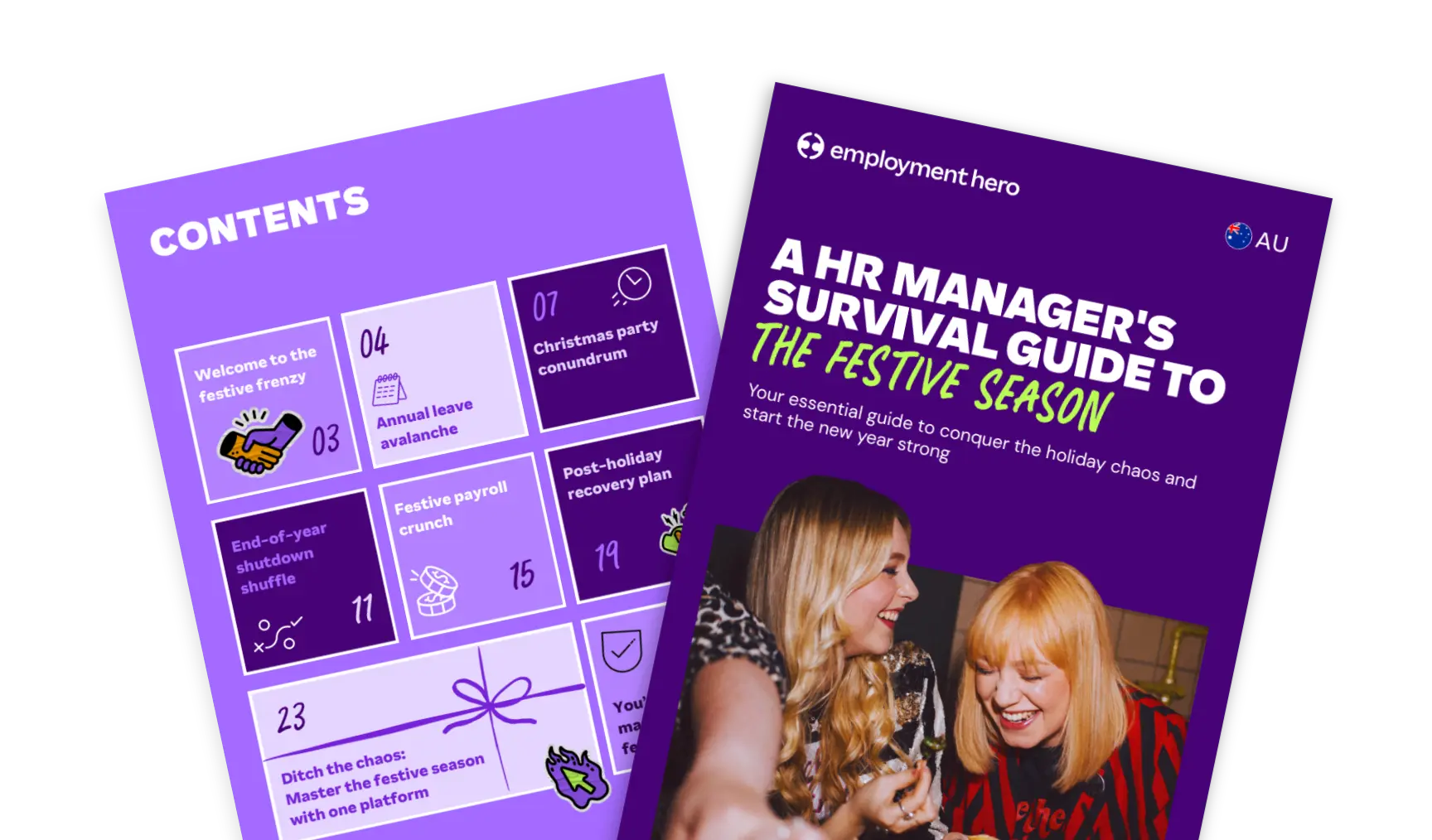 Read more: HR Managers: Don’t just survive the festive season, master it
Read more: HR Managers: Don’t just survive the festive season, master itHR Managers: Don’t just survive the festive season, master it
Make year-end easier: manage leave, payroll, parties and shutdowns with confidence. Get practical tips for Australian SMEs. Download the free…
-
 Read more: Monthly business budget template for employers
Read more: Monthly business budget template for employersMonthly business budget template for employers
Plan your monthly income and expenses with our free monthly business budget template. Download today to track cash flow and…

On-demand webinars
Trending in Australia
Exclusive insights, content and events to help grow your business. For SMEs on the up.
Big ideas. At your fingertips.

Blogs and articles
Bite-sized content helping you to stay across the latest trends and news about all things HR, payroll and people management.

Templates
Customisable templates library for all of your business needs.

Guides and playbooks
Let us be your guide for all things business, HR, payroll and people management.

Factsheets
Complex ideas – summarised and simplified. Browse our factsheet library covering the latest HR and payroll updates to keep your business compliant.

Watch and learn
Explore the vast library of our upcoming and on-demand webinars to learn from the leading industry experts about topics that matter to your business.

Case studies
Learn more about how we’ve made employment easier and more rewarding for businesses across multiple industries.
Browse the latest resources
Looking for more?
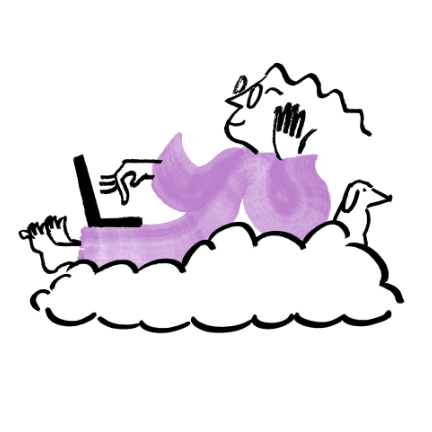
Online events. That keep you interested.
Sign up for an HR masterclass, learn about latest industry news or watch a panel session on demand.

Covid-19
Resource Hub
We’ve pulled together essential resources to help employers, managers and HR specialists navigate the ongoing pandemic.
Make work easier.
Get started today
Every big idea starts with a small step forward.





























